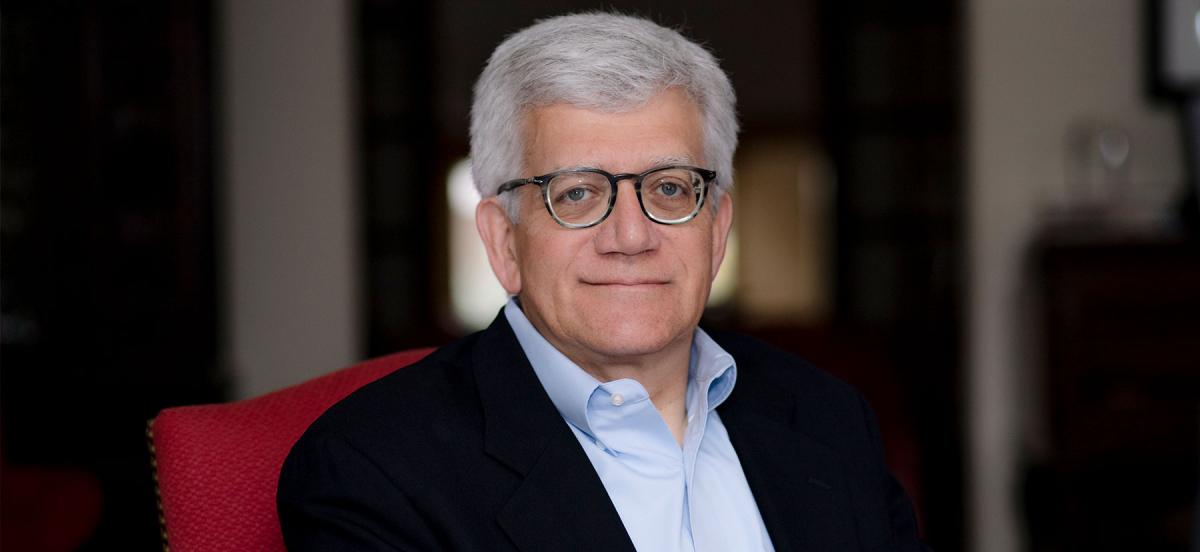How to Become a Better Leader

Photo of David Spitulnik '76 by Jessica Kaplan.
Details
Consultant David Spitulnik '76 discusses what he's learned about being a leader from a lifetime of leading all sorts of groups and projects, distilling these thoughts into five simple ideas.
Leadership has been on the mind of David Spitulnik ’76 for a long time: from his earliest experiences as a Boy Scout patrol leader and captain of the Haverford track team to his years as a manager at Motorola and his current job as a consultant focusing on leadership issues and executive coaching, Spitulnik has been gathering the experience and expertise that form the basis of his book, Becoming an Insightful Leader: Charting Your Course to Purposeful Success. We asked Spitulnik to tell us about the qualities and approaches that can help forge a true—and truly insightful—leader.
Be a leader, but don’t stop being a member of the team. Leading isn’t dictatorial, it’s a collaborative enterprise. At Motorola, they believed strongly in the notion of involved, engaged, values-based leadership—being present as a leader, instead of being remote. You have to solicit opinions and collaborate, but then sometimes you have to stop talking and say, “OK, let’s move.”
Acknowledge your mistakes. You might think that if your organization sees you make a mistake, that’s bad; but if they see you make a mistake and ignore it, that is what’s bad. The real mistake leaders make is not learning from their mistakes.
Sometimes a leader has to take one for the team. My senior year at Haverford, Coach Tom Donnelly asked me to be captain of the track team. At the Penn Relays there’s a mile relay named after a Haverford coach, the Haddleton Relay, and it’s an open race; Division III schools are invited to participate. I was one of the better quarter-milers, but we had a runoff to see who was going to run, and somebody cut me off. I tripped, and finished out of the top four. I complained and said I think I deserve to have another go at it. So Coach Donnelly said, “OK, run another quarter-mile, and if your time is better, you can displace somebody.” I did it better, but then he said, “You’re the Captain, you go and tell them.” I thought about it and said, “Maybe I won’t.” It was one of those lessons where I look back and realize what Tom did for me. He helped me understand that sometimes a leader has to sublimate his personal desires to what’s better for the team, and it was better for the team if I let it go.
Be sensitive to the environment. There’s a notion that you can fall into a leadership role where you say, “This is the way I’m going to lead and this is the way it’s always going to be.” An insightful leader operates in a world that’s situationally dependent. You need to understand what’s going on around you. You need to understand what’s needed at that specific point in time. You need to be aware of what’s going on with the people whom you’re leading. Each day, they’re going to need something different from you as a leader. An insightful leader will moderate based on what is needed, will understand the environment and how it’s impacting people.
Ask questions, and be open to being questioned. To be a good leader, a key element is communication—asking the team questions and then explaining what led you to make the decision you made. If you share with the team why you made the decision, they may disagree, but they respect that you shared why. And I don’t want people on my team who never question me, never help me think about what I’m doing. A good leader gets feedback on a decision, listens to the team, and sometimes says, “I hadn’t thought about that before. Let me give it some more thought.”



